Gaining Fresh Perspectives on Leadership and Sustainability in Southeast Asia at TF-NUS LEaRN 2023
August 18, 2023
IN BRIEF | 10 min read
- The TF-NUS LEaRN Programme is NUS Global Relations Office’s signature youth leadership programme, which takes place annually and is sponsored by the Temasek Foundation.
- This year’s programme began in May, where 34 participants from four local universities – NUS, Singapore University of Technology and Design, Singapore University of Social Sciences, and Singapore Institute of Technology – attended workshops, field trips, and presentations on sustainability and leadership in Indonesia.
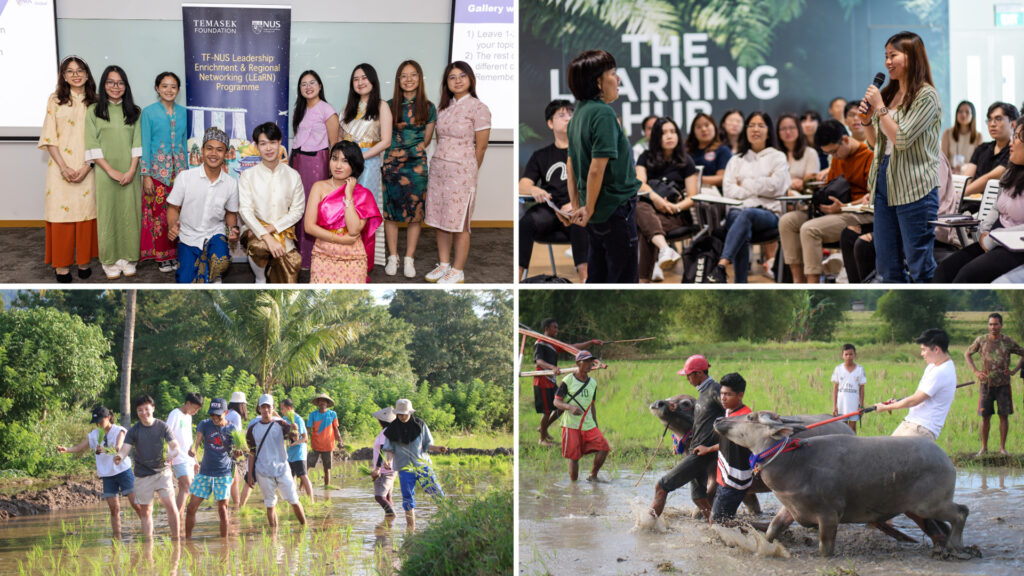
For 62 university students across Southeast Asia, the summer holidays were well-spent gaining new perspectives on leadership and sustainability through the Temasek Foundation-NUS Leadership Enrichment and Regional Networking (TF-NUS LEaRN) Programme.
This year’s programme began in May, where 34 participants from four local universities – NUS, Singapore University of Technology and Design, Singapore University of Social Sciences, and Singapore Institute of Technology – attended workshops, field trips, and presentations on sustainability and leadership in Indonesia.
The TF-NUS LEaRN Programme is NUS Global Relations Office’s signature youth leadership programme, which takes place annually and is sponsored by the Temasek Foundation.
Citing the rich cultural diversity and growing opportunities available in Southeast Asia, NUS Associate Vice President (Global Relations) Associate Professor Reuben Wong urged students to broaden their worldview, get to know their Southeast Asian neighbours better, and take active steps toward shaping the kind of society they want to live in.
“This is a great opportunity for youths to learn from one another, share their views, and play an active role in building an innovative and sustainable society. At the same time, it’s a chance for them to forge strong bonds and foster mutual respect and appreciation for the different cultures in the region, especially in an increasingly connected world,” said Assoc Prof Wong (who is also Deputy Head of NUS Political Science).
Sustainability Efforts in Indonesia
Participants from Singapore gained insights into a broad range of sustainability efforts and challenges through engaging discussions with speakers from both the public and private sectors during their visit hosted by Airlangga University in Surabaya.
This was followed by a trip to Sumbawa, in Indonesia’s West Nusa Tenggara province, where they learnt from Sumbawa University of Technology about their efforts to revitalise the agricultural industry through sustainable farming practices. The exposure was reinforced by a visit to the rice paddy fields where participants saw how local farmers engaged in sustainable farming by flooding the rice fields and releasing fishes into the fields to help with pest control.
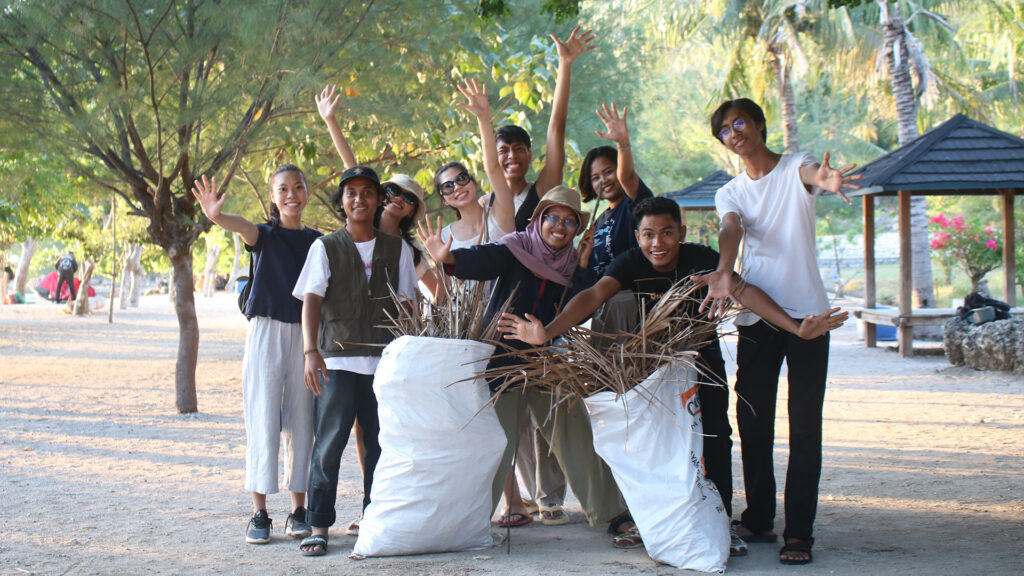
Additionally, the programme included experiential learning components on local sustainable waste management efforts. For this, students had a go at reforesting work, where they planted trees at Ai Lemak in Sumbawa, and pitched in during a beach cleanup with the locals. To complete the trip, students also experienced Indonesia’s rich culture and heritage through several dance, music and cooking lessons, village tours, and an exciting buffalo race in the paddy fields.
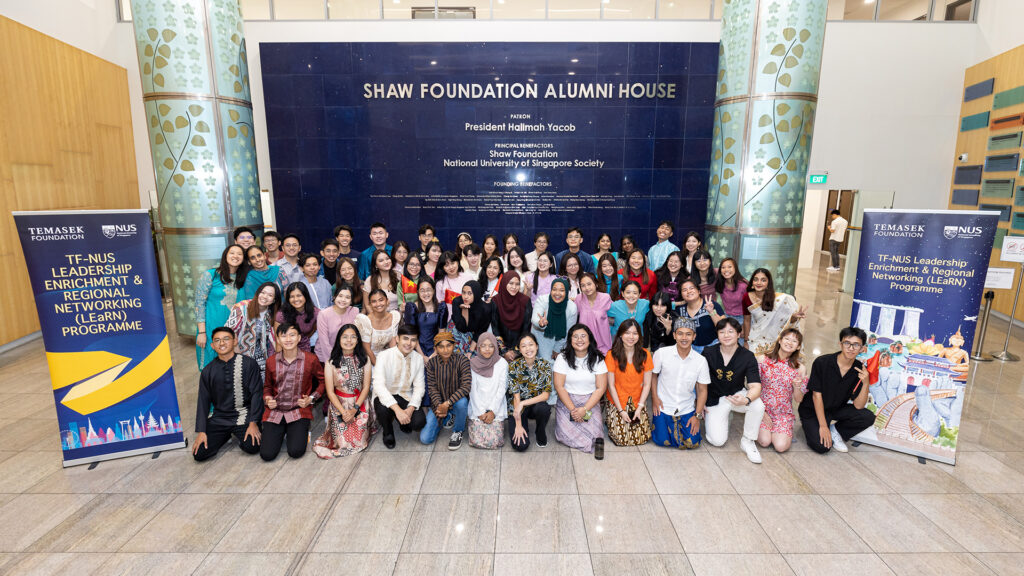
Leadership lessons in Singapore
Fast forward to July, the second and third phases of the TF-NUS LEaRN Programme resumed in Singapore, where the students were joined by 28 other participants from 15 universities across Southeast Asia hailing from countries including Brunei, Indonesia, Malaysia, Thailand, the Philippines and Vietnam.
They learned about the challenges of being a leader and managing a team through a series of site visits and interviews with leaders from various industries and backgrounds including the founders of trade associations for Singapore’s tech industry, SGTech and social enterprise SGAssist. They also had the opportunity to pitch their ideas and solutions to some of the challenges faced by social enterprises and businesses. In an inspiring dialogue with Ms Oh Siew May, a Singaporean chef and author with cerebral palsy, the participants were enlightened on untapped talent in the community.
“Just because someone is disabled doesn’t mean they are unable to do anything. We can do anything – even climb mountains. My disability will not stop me from doing what I want to do,” Ms Oh told participants. She successfully scaled Mount Kinabalu in 2005, Malaysia’s highest peak, and currently works at Fortitude Culina, a social enterprise that hires people with disabilities.
The students were also treated to a fascinating presentation by urban farmer and founder of local biotechnology start-up, Insectta, and FASS alumna Ms Chua Kai-Ning (NUS English, Linguistics and Theatre Studies '18). They learnt how black soldier fly maggots are used to sustainably produce biomaterials such as chitosan and melanin, which are often used in pharmaceutical products such as anti-microbial sprays, health and skincare products and even organic electronics, in large quantities. Using Insectta’s proprietary extraction technology, biomaterials are extracted and produced in a clean and sustainable manner. These are ultimately used in the manufacturing of environmentally-friendly commercial products.
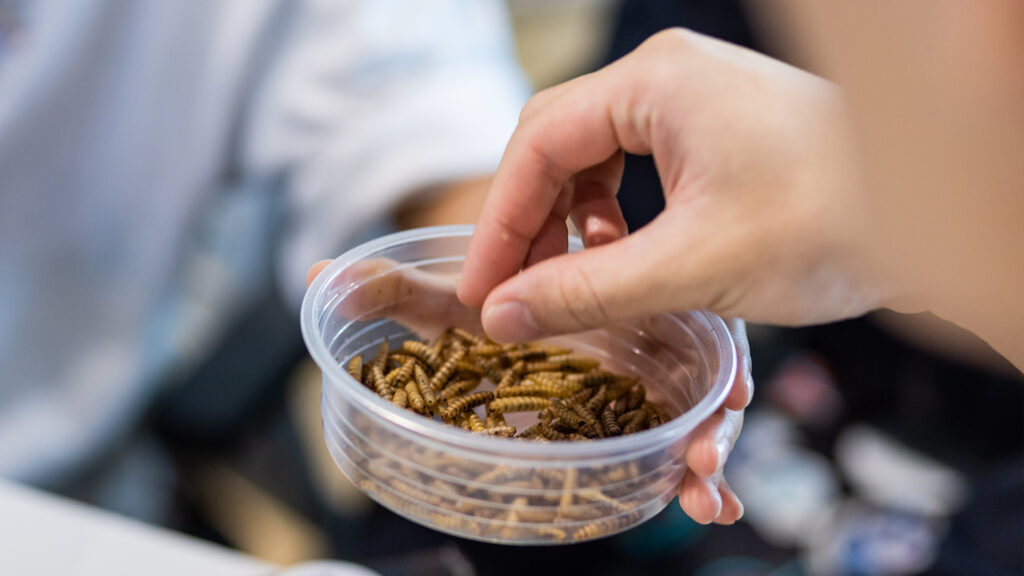
In the final leg of the programme, participants attended a series of workshops on futures thinking by NUS Lee Kuan Yew School of Public Policy, where they learnt about public policy, futures thinking methodology, and its application on real-world issues. They also attended a panel discussion on sustainability and leadership with industry experts and thought leaders, where they explored innovative approaches and strategies to drive sustainable development in ASEAN.
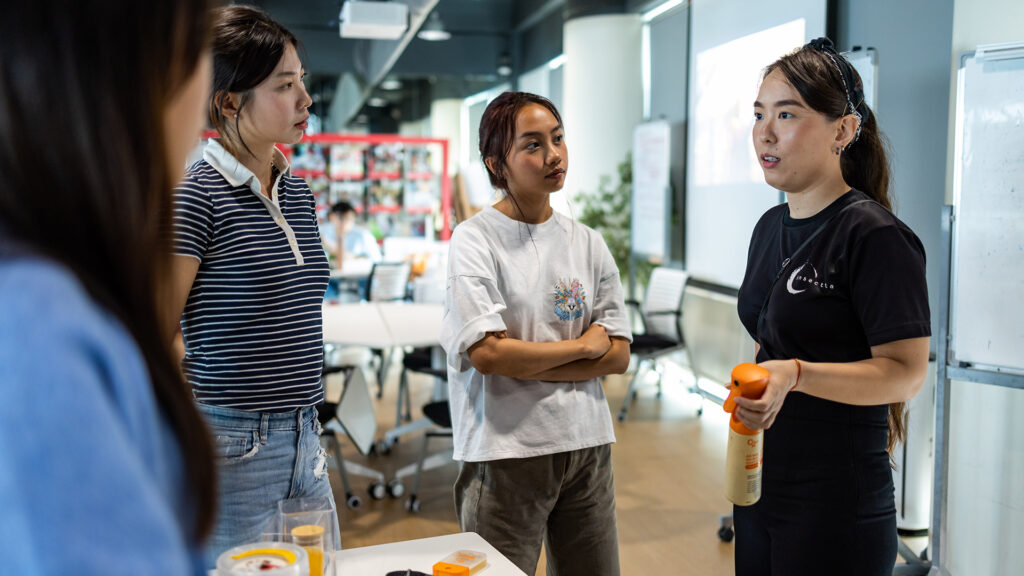
2040 Vision for ASEAN Countries
Leveraging their newly acquired knowledge and experiences from the intensive TF-NUS LEaRN Programme, students developed sustainability-enhancing strategies and shared their 2040 vision for ASEAN countries. Through engaging skits, creative props, and meticulously hand-crafted dioramas, the students presented their ideas on helping countries in ASEAN achieve sustainability goals in food, agriculture, waste management, education, tourism, and conservation.
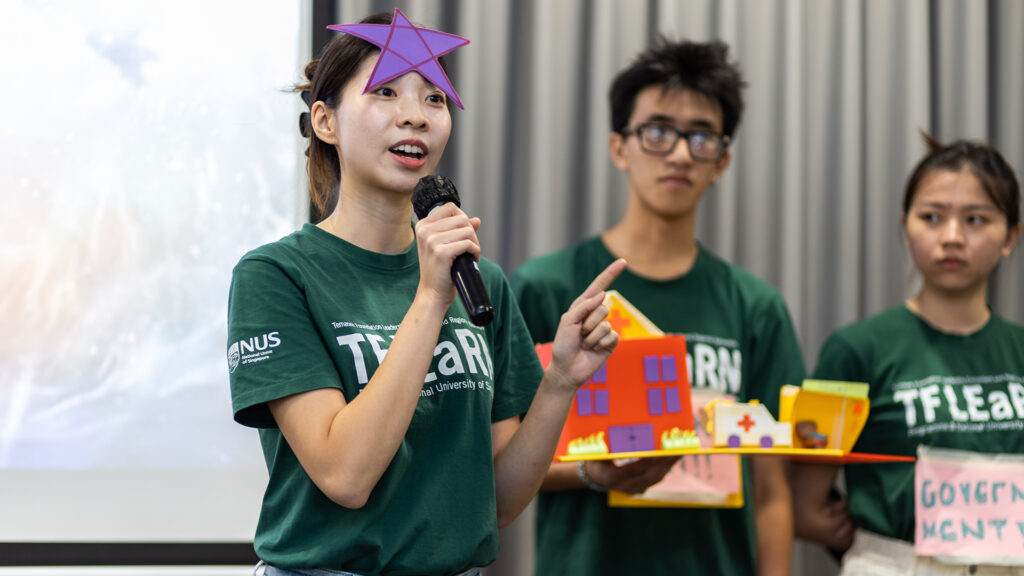
Mia Chow Qi Fang, a final-year NUS Landscape Architecture student and fellow LEaRN participant, shared that the programme was crucial in enhancing her intercultural communication skills. “I acquired many valuable skills that go beyond what I typically learn in my regular school routine. The development of soft skills, such as cultural sensitivity and effective communication across diverse cultures, was particularly useful to me. Such skills are vital in today's interconnected world, where it is important for us to be able to understand and collaborate with people from different backgrounds and cultures.”
“The TF-NUS LEaRN Programme was the perfect opportunity for me to not only acquire relevant leadership skills but also try them out in a safe space,” said Brandon New Jun Jie, an NUS Political Science freshman. “The programme’s themes and its carefully curated itinerary of field trips and academic discussions were very well thought through. The focus on sustainability, a field that I was not very knowledgeable about, was the icing on the cake.”
Dao Duy Ha Anh, a third-year engineering student from Hanoi University of Science and Technology, found the different leadership perspectives shared during the programme particularly enriching.
“One highlight of the programme was learning from the various leaders who shared valuable insights on handling feedback, overcoming challenges, and honing important career skills. This is very helpful for me as both a student, and as a working adult in the near future,” he said.
This story by NUS Global Relations first appeared in NUSnews on 17 August 2023.

